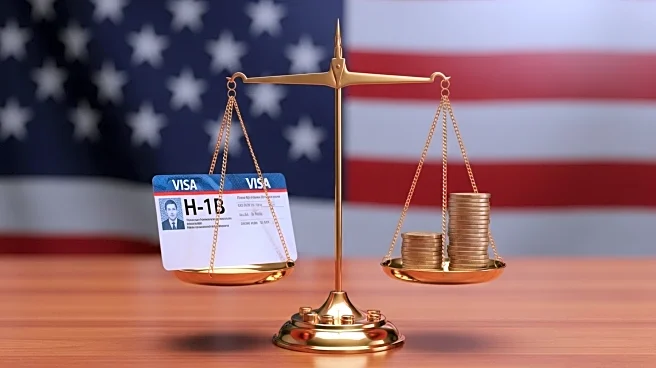What is the story about?
What's Happening?
President Trump has announced a significant increase in fees for the H-1B visa program, which is used by U.S. companies to hire foreign scientists and engineers. The new fee of $100,000 per visa aims to reduce reliance on foreign workers and encourage domestic talent in science and technology fields. The proclamation also suggests raising wage requirements for applicants and prioritizing higher-paid applicants in the visa lottery process. The changes may impact universities and nonprofit research organizations, although exemptions may be granted under a 'national interest' clause.
Why It's Important?
The proposed fee increase could create barriers for foreign STEM talent seeking opportunities in the U.S., potentially affecting innovation and competitiveness in science and technology sectors. The move reflects broader immigration policy changes under the Trump administration, which may have implications for international collaboration and research. The changes could also impact the availability of skilled workers in critical industries, influencing economic growth and technological advancement.
What's Next?
The proposed changes are likely to face legal challenges, and the impact on universities and research institutions remains uncertain. The Department of Homeland Security is also considering new restrictions on visas for international students, which could affect PhD candidates and long-term academic programs.
Beyond the Headlines
The fee increase and visa restrictions highlight ongoing debates about immigration policy and its role in shaping the U.S. workforce and economy. The changes may prompt discussions on balancing national security concerns with the need for global talent in innovation-driven fields.















